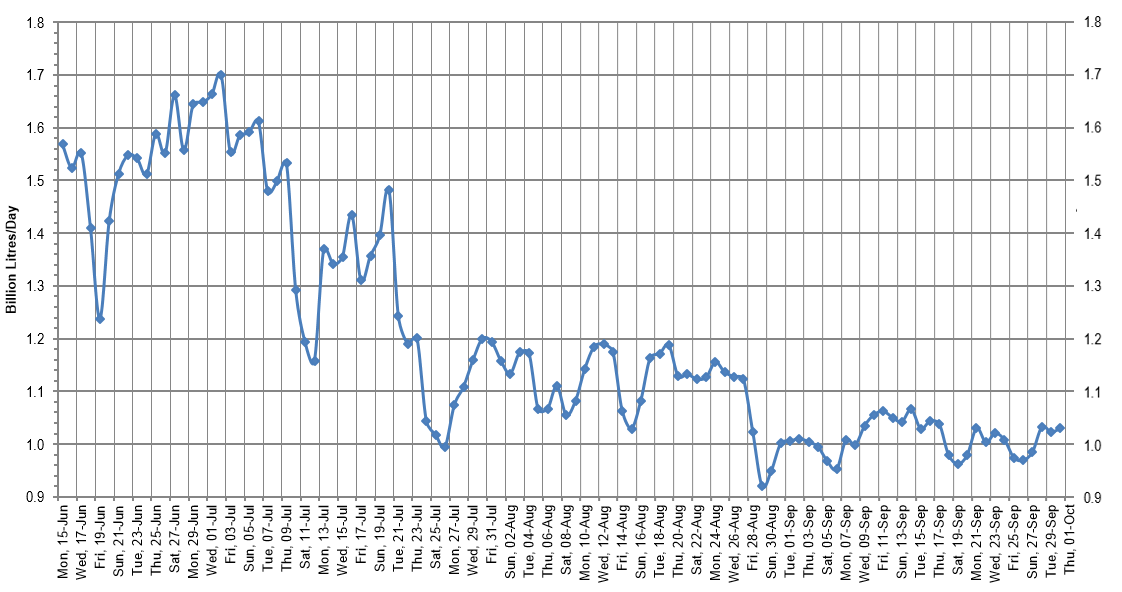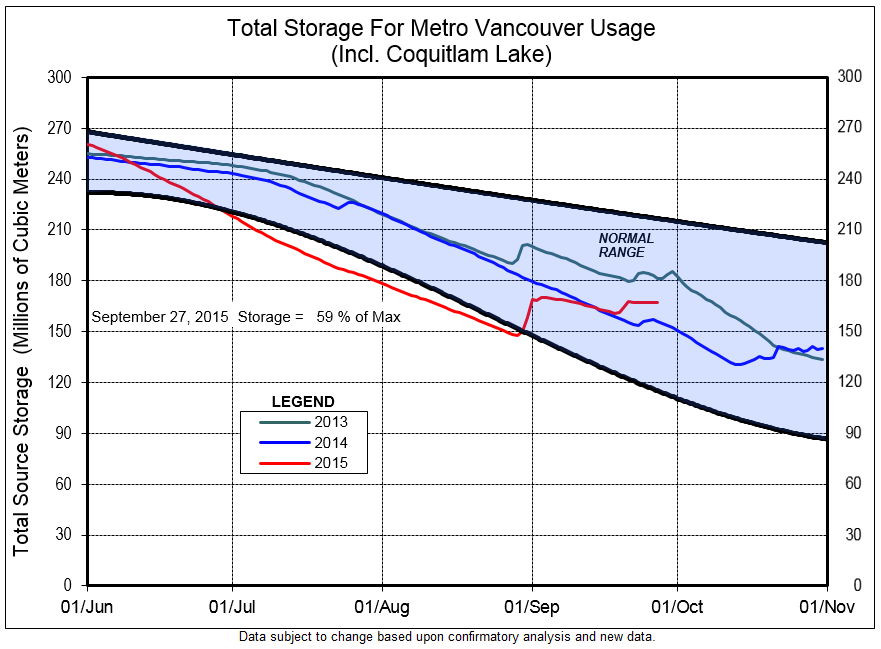After an anxious first half of 2015, water officials in Metro Vancouver are breathing easier.

“Our reservoirs are back to where they should be,” says Metro Vancouver Chair and Port Coquitlam Mayor Greg Moore.
Reservoir levels are now above 2014 levels, after months of being significantly below the normal range.
While several days of heavy rain at the end of August contributed the improved conditions, so did restrictions put in by Metro Vancouver.
Once the regional district moved to Stage 3 restrictions on July 20, water use plummeted. After averaging 1.4 billion litres of use every day for the previous month, the region hasn’t eclipsed 1.2 billion litres in a day since.
“We’d like all municipalities to work together, so that whether you live in Vancouver one year or you move to Port Coquitlam, there’s a similar fine structure, there’s similar education going on, so as you’re moving around the region, it’s similar regardless of what city you’re in,” he says.
This summer, the fines varied greatly – as did how often municipalities issued them. While West Vancouver issued no fines, the City of Richmond issued 439, totalling $208,200.
“People certainly wanted to see action taken against those that were in violation, and they didn’t have a lot of patience for people that weren’t obeying the laws,” says Richmond spokesman Ted Townsend.
“People certainly had lots of opportunity to be aware of what the situation was and what the restrictions were.”
As for Moore’s home municipality of Port Coquitlam? Just seven fines.
“There’s two ways to do it, with the carrots or the hammer,” says Moore. He says hiring two students to inform people was the biggest reason for the low total.
“They went out early the morning, to see people that might have their sprinklers out when they shouldn’t, gave them a pamphlet, came back later in the day and talked to them about it.”
Aerials: Low water level at Vancouver reservoir in early July







Comments